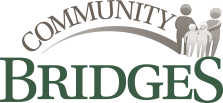Budget Explained
There are 7 “steps” in the budget process and many ways that individuals and families can be involved. Please contact Shawnna Bowman at sbowman@cbinnh.org to get on our legislative email list to get information about the budget and other bills that may be of interest to you.
Step 1 The Agency Phase
Every 2 years, in late July-mid August all agencies are asked to prepare various budget scenarios based on criteria provided to them by the Department of Health and Human Services (DHHS).
Step 2 the Department (DHHS) Phase
This phase happens usually in late August through mid-October. At this time, DHHS and the Bureau of Developmental Services (BDS) work on three different versions of the budget depending on the request of the Governor’s office.
Step 3 the Governors Phase
The Governor usually writes his/her budget beginning in October and delivers the budget in mid-February. At this time, the Governor and his budget staff will review the budget line by line.
*During this phase we may ask our existing infrastructure: local area agencies boards of directors, family support councils, families on the waitlist, etc. to call and write the governor’s office and ask him to submit a budget that fully funds developmental services in New Hampshire.
Step 4 the NH House Phase
Once the Governor has completed his/her budget proposal, it then moves into the NH House phase. The House has the budget until mid to late March, when it crosses over to the Senate. The chair of the House Finance committee may use the current budget as a baseline or (more likely) may introduce the governor’s budget as House Bill 1. HB 1 will be the vehicle to move the budget through the legislative process. The three “divisions” of the House Finance committee will review different state agencies within the budget. Division III reviews BDS and all of the bureaus of DHHS. The committee will go through items such as the DD and ABD waitlist and debate and vote on the level of funding that should be appropriated. At this time there will also be public hearings on the budget. When the three divisions complete their work the full finance committee will vote on the budget and make a recommendation to full House, which will eventually need to vote the budget up or down.
*During this time, we will need grassroots (that’s you!) efforts to contact the Division III House members and ask them to fully fund the waitlist and all of developmental services. We may need outreach to the entire House depending on the circumstances at the time.
Step 5 the NH Senate Phase
The Senate Finance committee will review and evaluate all of the work done by the House. They will offer changes called amendments based on their goals and revenue estimates for the State. The Senate does not break into official divisions but works as a full committee. As in the House, the full Senate will eventually need to vote the budget up or down. Their work needs to be completed by the beginning of June.
*We will need the same level of advocacy in the Senate as we do in the House.
Step 6 the Committee of Conference Phase
In the event that the House and the Senate don’t agree (they usually don’t) the leadership of the House and Senate Finance committees will meet in joint session to work and debate the differences between the two budgets. Once agreement is reached on this committee the budget goes back to the full House and Senate where the bodies can only accept or reject the budget presented to them. No amendments or changes are allowed at this point. All of this must be complete prior to June 30.
Step 7 Back to the Governor
Once the House and the Senate vote and agree on a budget, it goes back to the Governor. The Governor will receive the budget and must either sign it, veto it, or allow it to become law without his/her signature.
*At this point we like families to follow up with their representatives and the Governor and thank them for their work.
